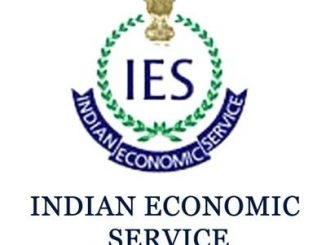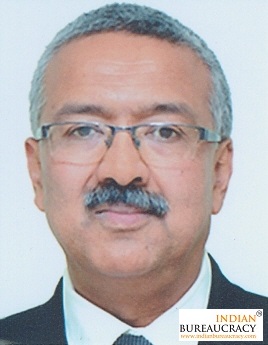
NITI Aayog in collaboration with Singapore Cooperation Enterprise (SCE) and Temasek Foundation, Singapore is organizing an Urban Management Programme for Capacity Building of officials of State Governments and ULBs in implementing the Urban Rejuvenation Mission. Officials from 7 States (Tamil Nadu, Andhra Pradesh, Gujarat, Maharashtra, Delhi, Uttar Pradesh & Assam) would be participating in this Programme. The Programme would cover areas of Urban Planning & Governance, Water, Waste Water & Solid Waste Management and Public Financing (PPP) of Urban Infrastructure. The Launch of the Programme is scheduled from 10:20 A.M. on 27 April, 2016 at Hall No. 4, Vigyan Bhawan, New Delhi. The Programme Launch would be followed by a two day Workshop on 28 & 29 April, 2016 on Urban Planning & Governance in Vigyan Bhawan.
Vice Chairman of NITI Aayog, Dr Arvind Panagariya will chair the Launch Programme which will be attended by the Member NITI Aayog, Dr Bibek Debroy, High Commissioner of Singapore, the CEO of Singapore co-operation Enterprise, SCE and the CEO of Temasek Foundation and senior officials from State Governments of Tamil Nadu, Andhra Pradesh, Maharashtra, Gujarat, Delhi, Uttar Pradesh and Assam, the Union Ministry of Urban Development, Ministry of Housing and Poverty Alleviation, NITI Aayog, academic institutions like School of Planning & Architecture, Delhi etc would attend the meet. The state participation is at the level of Secretaries of Urban Development, Municipal Commissioners and other senior officials of State Government and parastatal bodies.
The Programme has been designed by NITI Aayog, Temasek Foundation and Singapore Cooperation Enterprise (SCE) under the platform of the Memorandum of Understanding signed between NITI Aayog and the Singapore Cooperation Enterprise (SCE) to tap the expertise of Singapore in urban sector to build capacities in State Governments and ULBs. During the program, experts from Singapore would impart training in highly interactive workshops and share Singapore’s and international experiences with the participants. The workshops and advisory sessions would be highly interactive and focus on Urban Planning & Governance, Water and Wastewater Management, Solid Waste Management and bringing in private sector efficiencies in urban infrastructure. Towards the end of the Progaramme, Strategic Base line Frameworks will be developed in this areas of Urban Management
Background:
Urbanisation offers an opportunity to India to achieve higher economic growth as cities provide economies of agglomeration. Urbanisation level in India, which was around 31 per cent in census 2011 is estimated to increase and reach 40 per cent by 2030 in percentage terms, the urbanisation level may appear to be modest, however in absolute numbers it is very large. Urban population of India is more than the entire population of United States of America or Brazil. The urban economy has also witnessed significant growth and is contributing to around 60 per cent of GDP. However, to reap the full benefits of urbanisation, it is important that it is efficient and sustainable.
Rapid urbanisation is increasing the pressure on provision of basic services to citizens like water, sanitation and mobility in the urban areas in the country. Infrastructure deficit is increasing the coping costs as well as leading to loss of productivity in the cities. It is also adversely affecting the ability of cities in attracting investment in this globalized world. Governance in urban centres is also emerging as a major challenge particularly with the increasing number of census towns. Further, with the increasing pressure on natural resources, sustainability of cities is emerging as a major concern. A deficiency in processing and scientific disposal of urban waste is resulting in a situation where Indian cities are polluting water bodies, degrading soil and environment at a much larger scale than they use these resources. Environmental sustainability of Indian cities is therefore becoming a major imperative for guiding efficient urbanisation.
Therefore it is necessary to take measures to ensure that the urbanisation is efficient. It is imperative to improve the provisioning of basic infrastructure and governance in our cities so that the cities enable better living and drive economic growth and emerge as ‘Engines of Economic Growth’ and moreover do so in a sustainable manner. The urban centres have to become areas of intense mobility, socio-economic activity and hope for a large number of population. To transform the urban landscape in the country, the Government has recently launched the Urban Rejuvenation Mission (URM) comprising of Atal Mission for Urban Rejuvenation and Transformation (AMRUT), Smart Cities Mission and Housing for All.
The 74th Constitutional Amendment accorded constitutional status to the municipal bodies by initiating a process of democratic decentralisation with the objective of making urban governance more responsive. In order to meet the growing aspirations and expectations of people, and to meet the challenges of urbanisation, governance in the Urban Local Bodies (ULBs) needs to become more efficient, effective, responsive, citizen friendly, transparent and accountable. Currently, many Urban Local Bodies (ULBs) do not have sufficient capacity to plan, finance and implement efficient, smart and sustainable solutions for urban problems.
In order to effectively realise the vision of urban transformation, one of the key objectives is to build sufficient capacities in the Urban Local Bodies and State Government in urban management and provide greater financial and functional autonomy to the ULBs. In this backdrop, NITI Aayog has entered into a Memorandum of Understanding with Singapore Cooperation Enterprise (SCE) to tap the expertise of Singapore in urban sector to build capacities in State Governments and ULBs to facilitate in implementation of the Urban Rejuvenation Mission.







Leave a Reply
You must be logged in to post a comment.